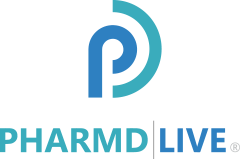Pharmaceutical Companies
Facilitating pharmaceutical research with timely information
Increase Market Share & Improve Pharmacological Outcomes
Non-adherence to prescribed medication regimens thwarts revenue generation, impacts patient outcomes, affects brand value and interferes with evidence of medication efficacy. Industry research indicates pharmaceutical executives are confident that boosting medication adherence will have a significant impact on patient outcomes and company revenues, however a lack of substantiated ROI data precludes companies from implementing structured adherence programs.
PharmD Live’s® medication adherence program leverages innovative software to identify patients at risk of medication non-adherence. Designed and implemented by clinical pharmacists, interventions focus on removing the barriers to adherence. Clinical pharmacists have a comprehensive understanding of the patient’s clinical profile, including drug-drug and drug-disease interactions, and personalized interventions for each patient.
Patient Engagement
remains the #1 predictor of medication adherence. PharmD Live’s patient education and disease-state management programs are based on fostering the relationship between patient, pharmacist and physician.
Innovative Software
identifies at-risk patients based on historical pharmacy claims data or at point of intervention.
User-Friendly, HIPAA-Compliant Technology
enables quick and easy access to virtual consultations. Home visits or telephonic consultations can also be accommodated.
High-Tech, High-Touch Model
fortifies the patient-pharmacist relationship, the #1 predictor of adherence.
Pharmacist-Led Ongoing Patient Education
improves clinical outcomes, catalyzes timely prescription refills and supports long-term behavioral change.
Pharmacist-Led Disease-State Management Programs
provide ongoing support to patients for optimal clinical outcomes.
Medication Adherence
PharmD Live’s programs are designed and implemented by clinical pharmacists—experts in medication therapy management and adherence.
Patient engagement remains the #1 predictor of medication adherence and drives our programs. Experts estimate medication non-adherence costs pharmaceutical companies more than $180B per year. Nearly half of all patients do not take medications as prescribed; more than 1 in 5 new prescriptions are never filled, and adherence is lowest for patients with chronic conditions.
Medication adherence, and its link to refill frequency, has significant financial implications for pharmaceutical companies. According to Network for Excellence in Health Innovation (NEHI), poor medication adherence causes 125,000 deaths in the United States annually.
Multiple factors underpin patient non-adherence. Pharmacist-led patient education and disease-state management programs address each of these factors to restore patient adherence.
Disease-State Management
Pharmacist-led disease state management programs provide the opportunity for patients to experience the most optimal outcomes possible.
Our patient education and disease-state management programs are based on fostering the relationship between patient, pharmacist and physician to impart a comprehensive understanding of the disease, etiology and treatment.
Patient Education
Pharmacist-led ongoing patient education improves clinical outcomes, catalyzes timely prescription refills and supports long-term behavioral change. Many of the gaps in patient self-care are linked to issues pharmacists are experts in: medication adherence, disease-state management, exercise, nutrition, smoking cessation.
ROI Research of Pharmacist-Led Interventions
Evidence of Clinical, Humanistic and Economic Impact
The Asheville Project, reported in the Journal of American Pharmacists Association, evaluated long-term clinical, economic and humanistic outcomes of pharmacist-led interventions on a group of 207 asthma patients. Patients who received pharmacist-led medication management showed sustained improvement of asthma for up to five years on all subjective and objective measures. Spending on asthma medications increased, and patients saved an average of $725 annually in direct costs and $1,230 in indirect costs.
